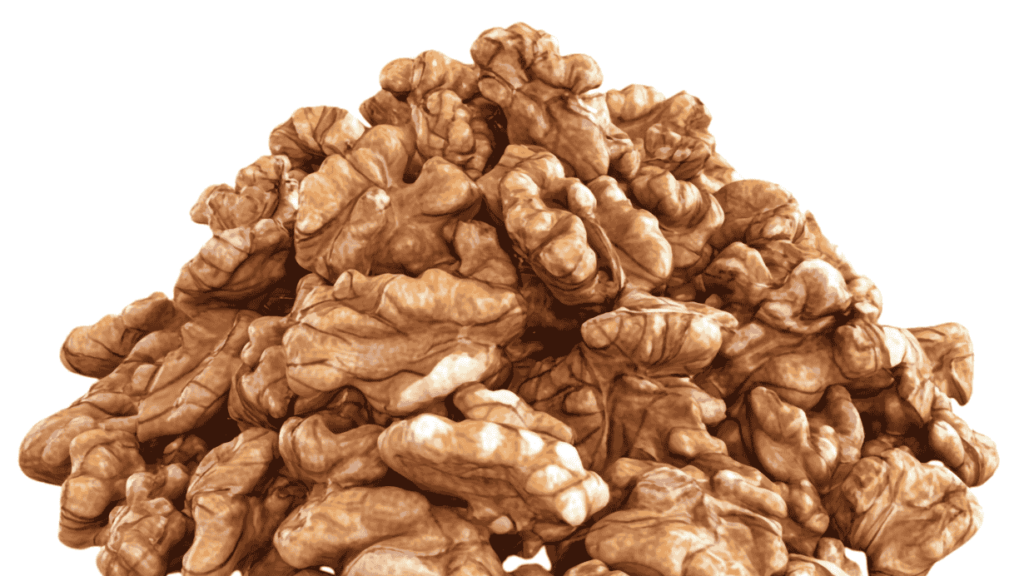Fresh Walnuts





Walnuts
Menu

| Heading | Information |
|---|---|
| Walnuts | Brain-shaped nuts rich in omega-3s, great for salads, baking, or boosting heart health. |
| Producing Countries | China, USA, Chile |
| Producing Benefits | Rich in Omega-3 Fatty Acids: Walnuts are one of the best plant-based sources of omega-3 fatty acids (ALA), which are beneficial for heart health and inflammation reduction. Brain Health: Walnuts are considered brain-boosting due to their high levels of antioxidants and omega-3s, potentially helping improve cognitive function and reduce the risk of neurodegenerative diseases. Heart Health: The monounsaturated fats and omega-3s in walnuts help improve heart health by lowering bad cholesterol (LDL) levels and supporting overall cardiovascular function. Antioxidant-Rich: Walnuts contain antioxidants like vitamin E, melatonin, and polyphenols, which help reduce oxidative stress and inflammation in the body. Weight Management: Walnuts may help promote feelings of fullness, reducing overall calorie intake. Despite being high in calories, they can help with weight management when consumed in moderation. Bone Health: Walnuts provide important minerals like calcium, magnesium, and phosphorus that contribute to bone strength. |
| Ingredients | Walnut Kernels: Walnuts are made from the kernels or edible portion of the walnut, which are typically harvested from the shell. Possible Additives: Some packaged walnuts may have added salt, oil (like sunflower or olive oil), or other seasonings depending on the preparation. |
| Allergen | Tree Nut: Walnuts are a common allergen as they are classified as a tree nut. Individuals with nut allergies should avoid them. Cross-Contamination: Walnuts may also be processed in facilities that handle other tree nuts or peanuts, increasing the risk of cross-contamination. |
| Storage | Cool, Dry Place: Store walnuts in a cool, dry place, away from heat or direct sunlight, to prevent them from becoming rancid. Airtight Container: After opening, store walnuts in an airtight container to maintain freshness and prevent exposure to air, which can lead to spoilage. Refrigeration: To extend the shelf life, it’s recommended to store walnuts in the fridge, especially in warm climates, as their high fat content can make them more prone to rancidity at room temperature. Freezing: Walnuts can also be frozen for longer storage. Just make sure they are sealed tightly in an airtight bag or container to prevent freezer burn. |
| Nutrition Facts | Nutrition Facts (per 1 ounce or ~28 grams of walnuts): Calories: Approximately 185 kcal Total Fat: 18.5 g Saturated Fat: 1.7 g Monounsaturated Fat: 2.5 g Polyunsaturated Fat: 13.3 g (including omega-3 ALA) Cholesterol: 0 mg Sodium: 0 mg (varies with salted versions) Total Carbohydrates: 3.9 g Dietary Fiber: 1.9 g Sugars: 0.7 g Protein: 4.3 g Vitamins and Minerals: Vitamin E: 0.2 mg Vitamin B6: 0.1 mg Magnesium: 45 mg Phosphorus: 100 mg Copper: 0.4 mg Iron: 0.8 mg Manganese: 0.9 mg |


